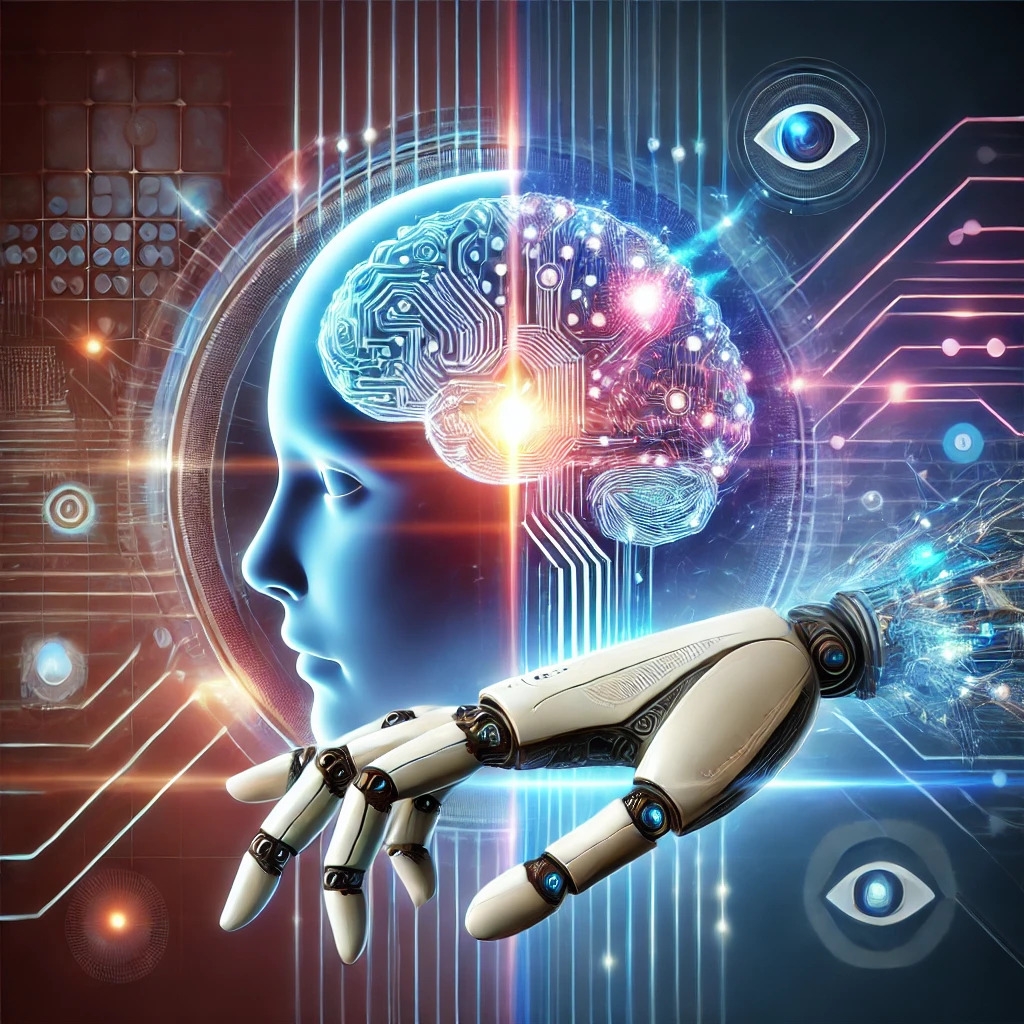Artificial Intelligence (AI) has become a hot topic, sparking excitement and fear in equal measure. From sci-fi scenarios about robots taking over the world to genuine concerns about job automation, people are asking: What is AI, and should we really be scared? This article unpacks the myths and truths about AI, offering a balanced perspective to help you understand its potential—and its limits.
The Fear of the Unknown
One of the biggest reasons people fear AI is the uncertainty it brings. Questions like “Will AI take my job?” or “Can AI become smarter than humans?” often dominate conversations. Let’s break these fears down:
✔ Job Automation: Yes, AI is transforming industries, automating repetitive tasks, and making businesses more efficient. But it’s also creating new opportunities in fields like AI development, data analysis, and ethical AI oversight. Explore job automation trends.
✔ Superintelligence: While the idea of AI surpassing human intelligence makes for great movies, we’re far from creating sentient machines. Current AI systems are designed to solve specific problems, not to think like humans. Read about AI limitations.
What AI Can Actually Do
AI isn’t about killer robots or mind control; it’s about making our lives easier. Here are some real-world examples of AI at work:
✔ Healthcare: AI tools like predictive diagnostics and robotic surgery assistants are saving lives. See AI in healthcare.
✔ Finance: Fraud detection algorithms protect your money, while AI-powered apps help you manage your finances more effectively. Check out AI in finance.
✔ Customer Service: Chatbots and virtual assistants handle queries faster and more efficiently than ever. Discover AI-driven customer support.
These examples show that AI is less about replacing humans and more about enhancing human capabilities.
The Products and Services Behind the AI Revolution
AI isn’t just a concept; it’s a rapidly growing industry fueled by innovative products and services. Some of the key players include:
✔ Cloud-Based AI Platforms:
- AWS AI – Offers businesses AI tools for automation.
- Google Cloud AI – Enables AI development with Google’s infrastructure.
✔ Personal Assistants:
- Amazon Alexa – Voice assistant for daily tasks.
- Google Home – Smart home automation powered by AI.
✔ AI-Powered Software:
These products make AI accessible, practical, and valuable, even for non-tech-savvy users.
Pros and Cons of AI
✅ Pros:
- Efficiency: AI automates tasks, saving time and resources.
- Accuracy: AI reduces human errors in fields like finance, healthcare, and customer service.
- Accessibility: AI-powered tools help businesses of all sizes scale operations.
- Innovation: AI fuels advancements in science, medicine, and education.
❌ Cons:
- Job Displacement: Some industries see job reductions due to automation.
- Bias in AI: Poorly trained AI models can perpetuate discrimination.
- Privacy Concerns: AI-driven data collection raises ethical concerns.
- Dependence on Technology: Overreliance on AI can reduce critical thinking and problem-solving skills.
The Ethical Side of AI
Of course, it’s not all sunshine and rainbows. AI raises important ethical questions:
✔ Bias: If AI systems are trained on biased data, they can perpetuate discrimination. Learn about AI bias.
✔ Privacy: How do we ensure our data is used responsibly? Read about AI and data ethics.
✔ Accountability: Who is responsible when an AI system makes a mistake? Explore AI regulations.
These challenges highlight the need for responsible AI development. Governments, tech companies, and consumers must work together to create guidelines that ensure fairness, transparency, and accountability.
Embracing AI Without Fear
Instead of fearing AI, we should focus on understanding it. Here’s how you can engage with AI positively:
✔ Educate Yourself: Read books, watch videos, or take online courses to learn the basics of AI. Free AI courses.
✔ Experiment: Try out AI-powered apps and tools to see how they can improve your life.
✔ Stay Informed: Follow reputable news sources to keep up with the latest developments in AI technology.
AI isn’t something to fear; it’s something to embrace with caution and curiosity. By understanding what AI can and cannot do, you can make informed decisions about how to use it in your life. The future of AI isn’t about replacing humanity but enhancing it. So, the next time you hear about AI, ask yourself: What are you really scared of?
